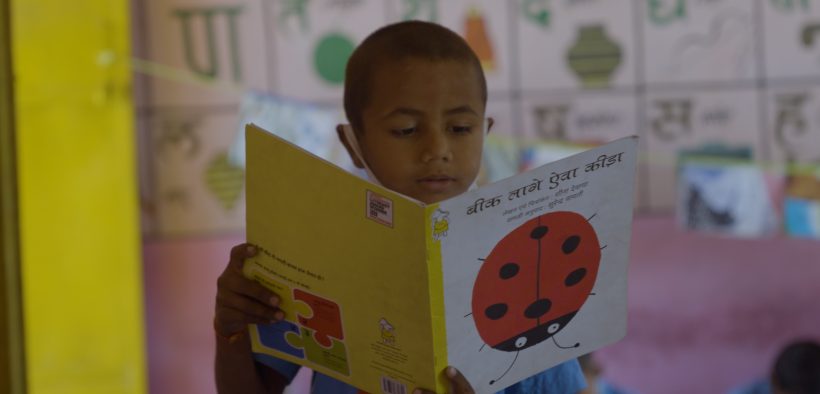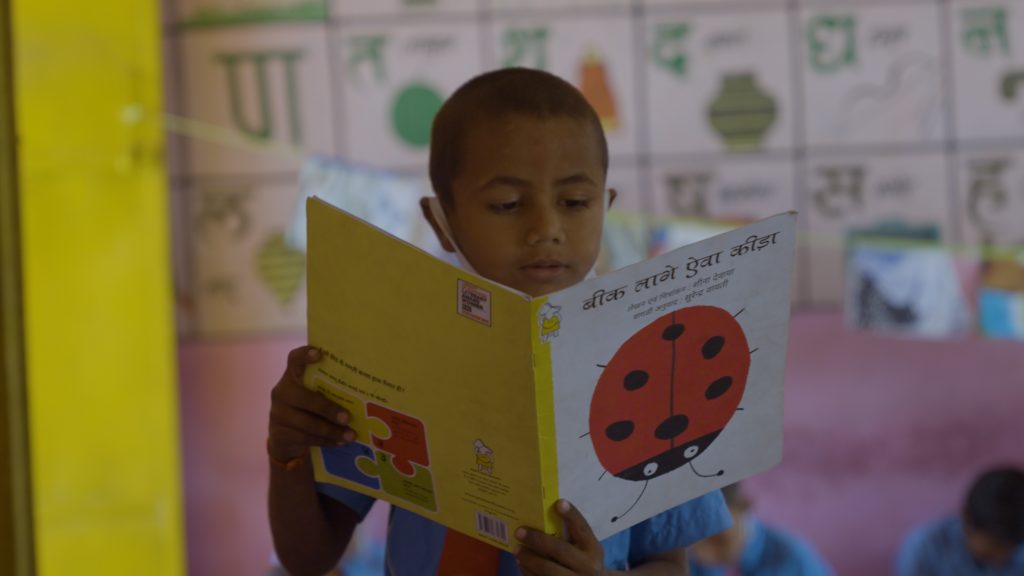Sharing the joy of reading in tribal communities in Rajasthan


India has the second largest school system in the world, after China. The Covid-19 pandemic exacerbated the learning crisis, especially for children from underserved communities. We risk losing decades of progress towards improving our country’s educational outcomes. A study conducted by Azim Premji University in 2021* of over 16,000 children in 1,137 public schools in five states found that the learning losses due to school closures during the pandemic resulted in an average of 92% of children losing at least one specific language ability and 82% of children losing one mathematical ability from the previous year across all classes. This study included nearly 4,000 children in 200 schools in Rajasthan.
According to the 2011 Census, tribal communities make up almost 14% of the population of Rajasthan, India’s largest state by area and the seventh largest by population. In tribal communities, children learn language through the oral tradition of interacting with their family and community in their mother tongue, since there is often no written script of the language. At school, however, they are taught in the mainstream language, which can be a difficult transition.
Tribal children in Rajasthan face innumerable challenges in accessing education. Schools are generally far away from their hamlets; often, parents have to migrate seasonally in search of work, so the children have to stop attending school. To address some of these issues, the Tribal Area Development (TAD) department of the Government of Rajasthan set up community schools for tribal children in remote areas through its development wing called SWACH. These community schools, or Ma Bari Centres are for children between the ages of 6 and 12 years of age. A total of 2,609 Ma Bari Centres are being operated in 11 districts of Rajasthan where 3,500 teachers are teaching 78,270 tribal children.
UNICEF and TAD-SWACH first partnered with Pratham Books in 2020 to develop open licensed high quality local language digital libraries through translation workshops in the tribal languages of Sahariya and Vagadi. 100 storybooks were translated with the help of language experts and enthusiasts.
In 2021, the printed storybooks were distributed to 9000 children enrolled in 300 Ma Bari centres located across four districts in Rajasthan to help them continue their learning journeys while at home, as schools remained closed due to the pandemic. Supplemental support was also provided in the form of Read at Home book packs, including activity workbooks in Sahariya and Vagadi. Teachers were also trained on how to use the storybooks effectively to develop the children’s reading skills. Through this collaborative effort, we were able to bridge the learning gap for children from these tribal communities.
This project was supported by UNICEF Rajasthan and implemented in partnership with TAD-SWACH.
*Loss of Learning during the Pandemic Field Studies in Education |. (2021). [online . Available at: https://archive.azimpremjiuniversity.edu.in/SitePages/pdf/Field_Studies_Loss_of_Learning_during_the_Pandemic.pdf [Accessed 2 July 2021].
